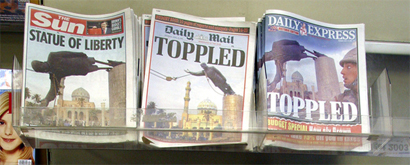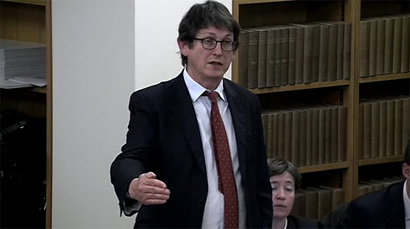
Image by DanBrady on Flickr. Some rights reserved
Imagine a top tabloid newspaper supported a leading ‘non-Westminster’ politician through his difficult divorce. Instead of printing hard-hitting stories about the moral duplicity of this very Christian politician, it publishes soft-focus, upbeat articles about his lovely new wife and their joyous life together. The politician goes on to become a leading national figure, but then the tabloid discovers a story of his corruption when he was back in the regions. The politician rings up the tabloid editor to threaten ‘unpleasant and public consequences’ if they publish. What happens next?
The Leveson inquiry has not really got to grips with this aspect of media practice. Never mind the law or the codes, feel the power. In the past, commentators like John Lloyd felt the press had become too mighty and could make or break politicians and even determine elections. Then during the Blair/Campbell years it was felt the pendulum had swung the opposite way. Perhaps some people could imagine Peter Mandelson making a similar threat to a journalist at the height of his career?
In fact the scenario outlined above is playing out in the real world. In Germany, the President, Christian Wulff, was silly enough to try to intimidate his old chums on Bild. The tabloid ignored the threats and published the story of how Wulff had taken a very large secret loan from the wife of a local businessman. He then lied about it. The scandal now threatens to end the career of the man who is, in effect, Germany’s head of state. In the midst of the Eurozone crisis, this is not good news for Angela Merkel.
But the point is that – without subterfuge or phone-hacking – this German tabloid has turned on its former political ally. As the chief executive of Bild’s publisher, the Springer group, Mathias Döpfner said “whoever takes the elevator up with Bild will also take the elevator down with it”.
It is always difficult to make international comparisons. Is Axel Springer comparable to Rupert Murdoch? As I have written elsewhere, British tabloids are pretty unusual. But the question does spring to mind – could it, or perhaps rather, how would it happen here?
This is a cross-post from the Polis blog.


